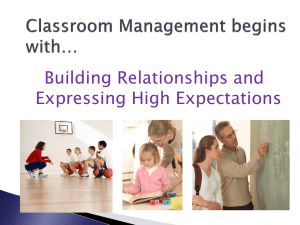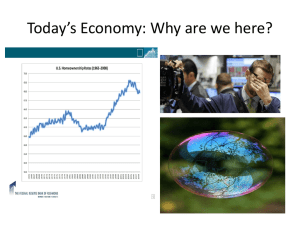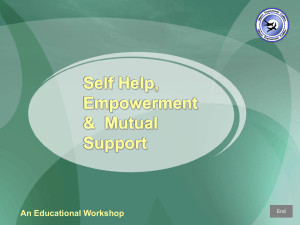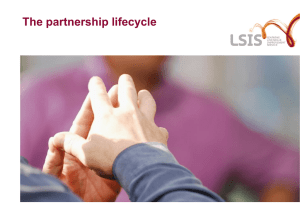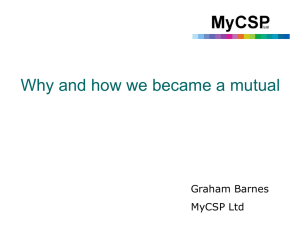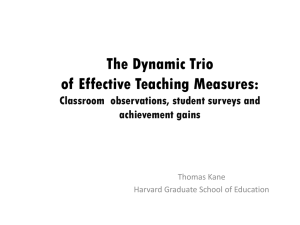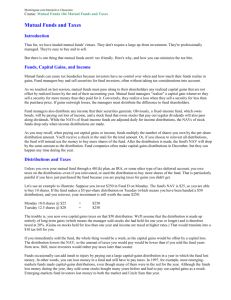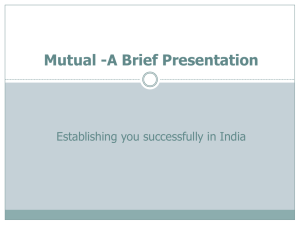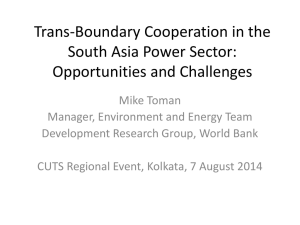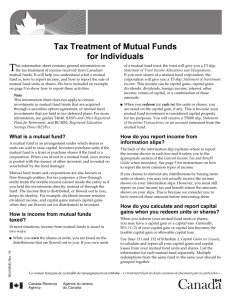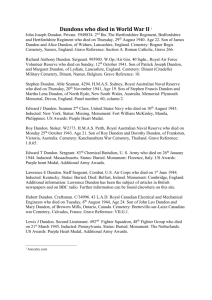File
advertisement
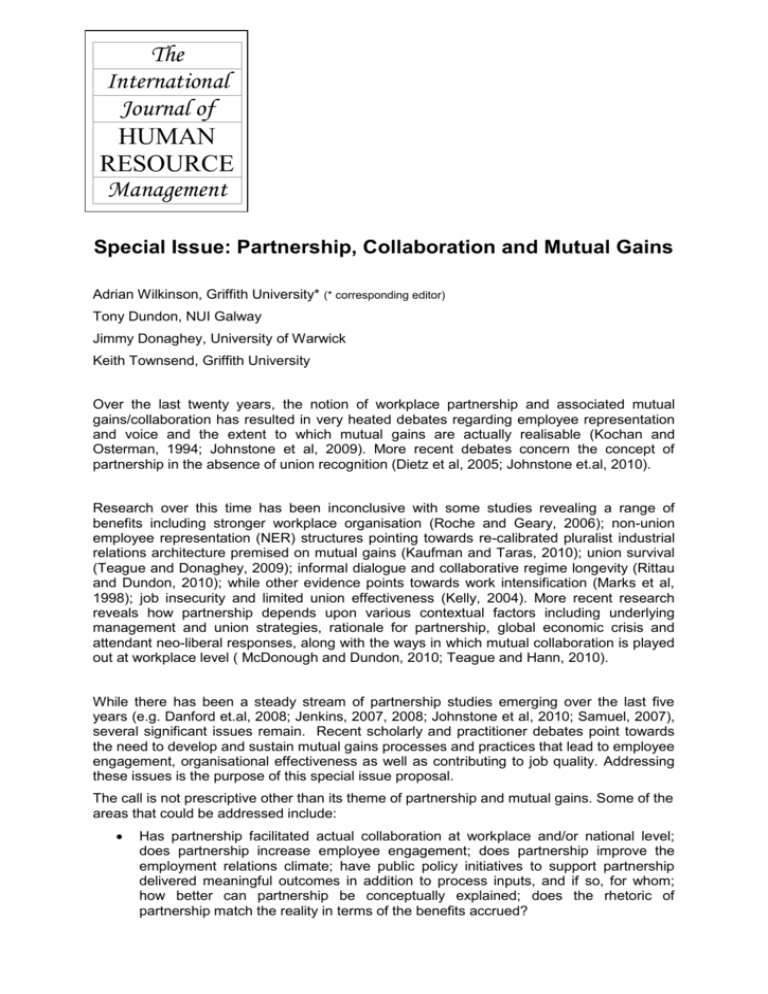
The International Journal of HUMAN RESOURCE Management Special Issue: Partnership, Collaboration and Mutual Gains Adrian Wilkinson, Griffith University* (* corresponding editor) Tony Dundon, NUI Galway Jimmy Donaghey, University of Warwick Keith Townsend, Griffith University Over the last twenty years, the notion of workplace partnership and associated mutual gains/collaboration has resulted in very heated debates regarding employee representation and voice and the extent to which mutual gains are actually realisable (Kochan and Osterman, 1994; Johnstone et al, 2009). More recent debates concern the concept of partnership in the absence of union recognition (Dietz et al, 2005; Johnstone et.al, 2010). Research over this time has been inconclusive with some studies revealing a range of benefits including stronger workplace organisation (Roche and Geary, 2006); non-union employee representation (NER) structures pointing towards re-calibrated pluralist industrial relations architecture premised on mutual gains (Kaufman and Taras, 2010); union survival (Teague and Donaghey, 2009); informal dialogue and collaborative regime longevity (Rittau and Dundon, 2010); while other evidence points towards work intensification (Marks et al, 1998); job insecurity and limited union effectiveness (Kelly, 2004). More recent research reveals how partnership depends upon various contextual factors including underlying management and union strategies, rationale for partnership, global economic crisis and attendant neo-liberal responses, along with the ways in which mutual collaboration is played out at workplace level ( McDonough and Dundon, 2010; Teague and Hann, 2010). While there has been a steady stream of partnership studies emerging over the last five years (e.g. Danford et.al, 2008; Jenkins, 2007, 2008; Johnstone et al, 2010; Samuel, 2007), several significant issues remain. Recent scholarly and practitioner debates point towards the need to develop and sustain mutual gains processes and practices that lead to employee engagement, organisational effectiveness as well as contributing to job quality. Addressing these issues is the purpose of this special issue proposal. The call is not prescriptive other than its theme of partnership and mutual gains. Some of the areas that could be addressed include: Has partnership facilitated actual collaboration at workplace and/or national level; does partnership increase employee engagement; does partnership improve the employment relations climate; have public policy initiatives to support partnership delivered meaningful outcomes in addition to process inputs, and if so, for whom; how better can partnership be conceptually explained; does the rhetoric of partnership match the reality in terms of the benefits accrued? The International Journal of HUMAN RESOURCE Management Does partnership deliver mutual gains; what does mutual gains mean in both empirical and conceptual terms to employers, workers and unions; do union and nonunion forms of collaboration differ in their processes and outcomes; how are mutual gains evaluated; can public policy aid in the creation of mutual gains; can gains ever truly be mutual? Employee engagement is of growing scholarly interest and papers are welcome on a number of related issues: the theoretical validity and currency of employee engagement; what is ‘new’ about employee engagement; is engagement a mutual gains concept; how does engagement differs from partnership, if at all; what factors promote or inhibit employee engagement; what does employee engagement mean for trade unions; why are governments/State agencies interested in employee engagement; can engagement outcomes be tested (among others). Papers are to be submitted by 1st December 2011. Manuscripts should be submitted online using the International Journal of Human Resource Management ScholarOne Manuscripts site (http://mc.manuscriptcentral.com/rijh) To submit your manuscript to this special issue choose the title of the special issue from the manuscript type list when you come to submit your paper. Also, when you come to the ‘Details and comments’ page, answer ‘yes’ to the question ‘Is this manuscript a candidate for a special issue’ and insert the title in the text field provided. The editors of the special issue are happy to discuss initial ideas for articles via e-mail References Dietz, G., Cullen, J. & Coad, A. (2005) ‘Can there be non-union forms of partnership?’, Employee Relations 27(3): 289-306 Johnstone, S., Ackers, P. and Wilkinson, A. (2010 ) ‘Better than nothing: is non-union partnership a contradiction in terms’ Journal of Industrial Relations 52(2): 151-16 Johnstone, S., Wilkinson, A. and Ackers, P. (2009) ‘The British Partnership Phenomenon’, Human Resource Management Journal 16(3): 260-279 Kaufman, B. and Taras, S. (2010) ‘Employee participation through non-union forms of employee representation’, in Wilkinson, A., Gollan, P., Lewin, D. and Marchington, M. (eds.), The Oxford Handbook on Employee Participation: OUP Kelly, J. (2004) ‘Social partnership agreements in Britain: labor co-operation and compliance’, Industrial Relations 43(1): 267-92 Kochan, T. and Osterman, P. (1994) The mutual gains enterprise: Cambridge, Mass: MIT Press The International Journal of HUMAN RESOURCE Management Marks, A., Findlay, P., Hine, J. A., McKinlay, A., and Thompson, P. (1998) ‘The Politics of Partnership?’ British Journal of Industrial Relations 36(2): 209-226 McDonough, T. and Dundon, T. (2010), ‘Thatcherism Delayed? The Irish crisis and the paradox of social partnership’, Industrial Relations Journal, Vol 41 (6), pp.544-562 Rittau, Y. and Dundon, T. (2010) ‘The roles and functions of shop stewards in workplace partnership: evidence from the Republic of Ireland’, Employee Relations, 32(1): 10-27 Roche, W. K. and Geary, J.F. (2006) Partnership at Work: The Quest for Radical Organizational Change, London: Routledge Teague, P. and Hann, D. (2010) ‘Problems with partnership at work: lessons from an Irish case study’, Human Resource Management Journal 20(1):100-114. Teague, P. and Donaghey, J. (2009) ‘Why has Irish Social Partnership survived?’, British Journal of Industrial Relations, 47(1): 55-78 Editor: Professor Michael Poole, Cardiff Business School, Cardiff University, Colum Drive, Cardiff CF10 3EU, UK Fax: ++44 (0)29 20874301 Tel: ++44 (0)29 20874150 Email: IJHRM@cardiff.ac.uk Published by Routledge, an imprint of Taylor and Francis Ltd, 11 New Fetter Lane, London, EC4P 4EE, UK
